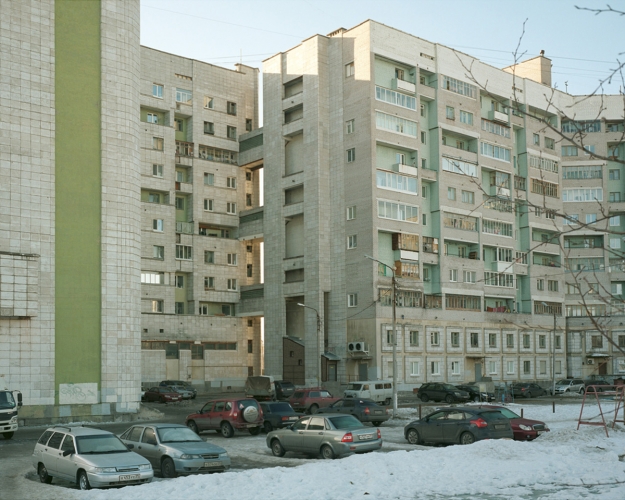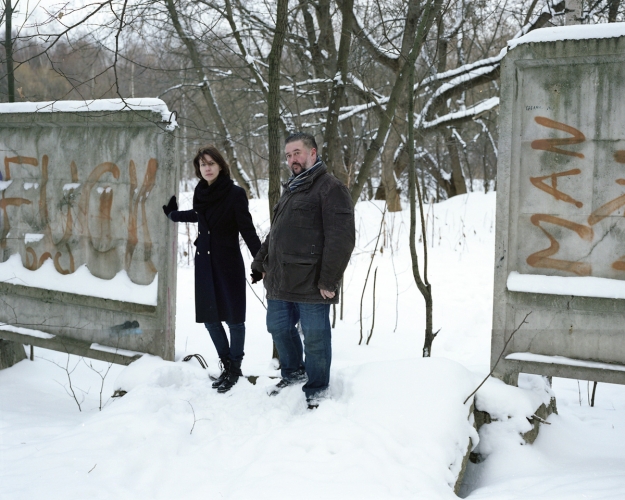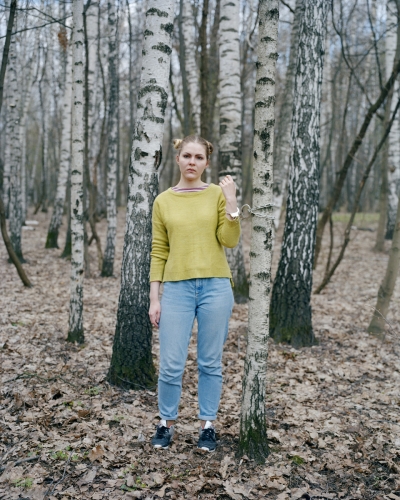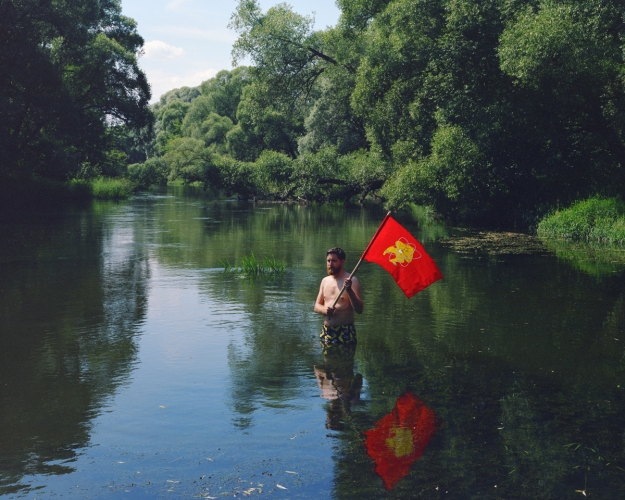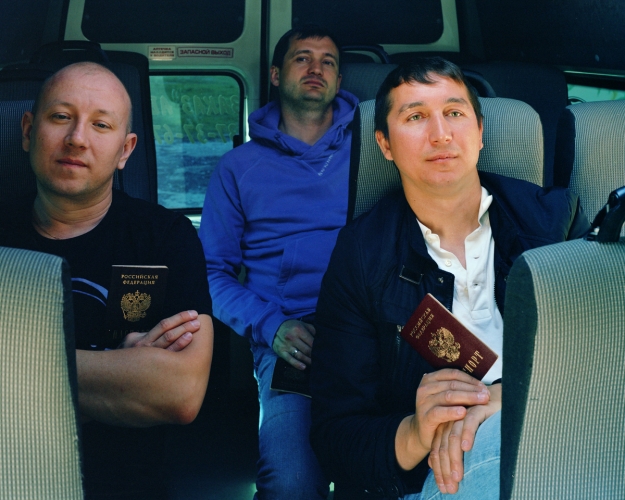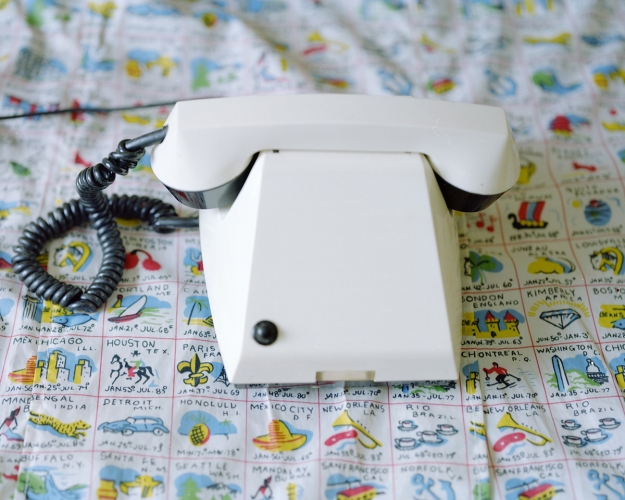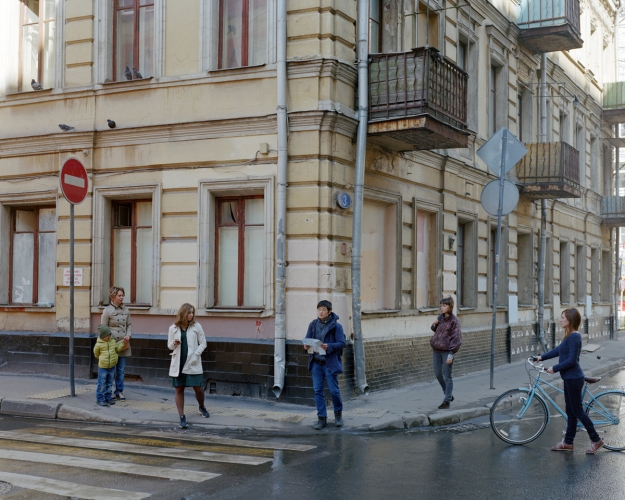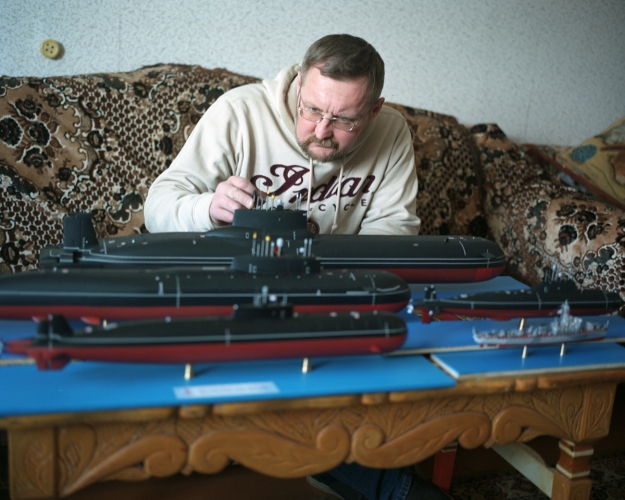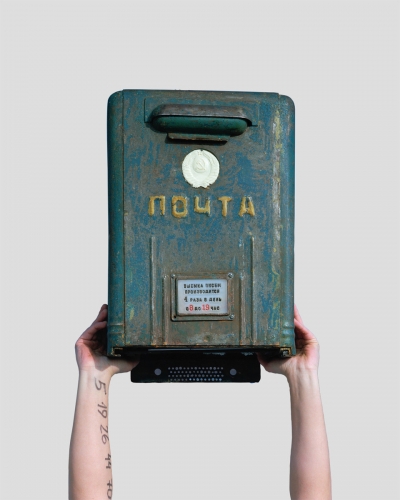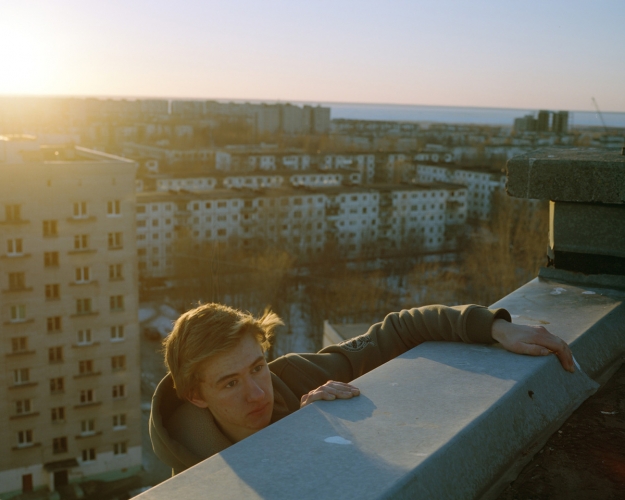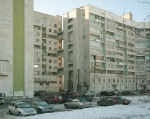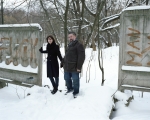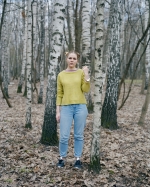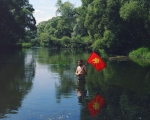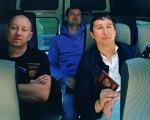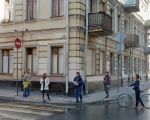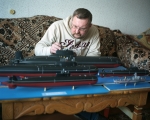Sergey Novikov was born in 1979 in Cheboksary, Russia. Currently he lives and works in Moscow.
Confrontation with the West gave rise to a special type of territorial unit in Soviet Union: closed cities. They served science and defense needs of the country as nuclear weapon development (Arzamas-16) or disposal (Sverdlovsk-45) sites, home to the navy and missile forces. These cities were not mapped, had encrypted names and were called "mailboxes" on the analogy with classified institutes or manufacturing facilities situated in them, which didn't have a specific address but only a mailbox number, to where all post were sent. Residents of these cities have been told not to mention their place of living, to use name of the nearest major city instead (for example, Krasnoyarsk instead of Krasnoyarsk-26).
Together with the collapse of the Soviet state, another life began in these closed cities; they ceased to be secret. Nevertheless, borders remained closed for "outsiders", well-being (budget subsidies, low crime rate, high-level medicine and social services) forced residents wary of the first timid attempts to raise the issue of whether to retain barriers.
There are 42 closed cities and 1.2 million people nowadays in Russia. To enter into these towns you need a pass, an invitation from a near relative typically. Recent polls in "mailboxes" revealed that the majority of people are still against the radical change of territorial policy. They reckon a crowd of homeless, criminals, migrants and deprivation of budget support as the most probable consequences of dismantling protective barriers.
Closed city, a kind of utopia, a dream where there is a request to "we". "We are others, and the border is around us".
I've created "The Wall-7,16,45…" project from the tails of memories of those cities residents, my own experience in visiting such places, being inspired by forums web chats, authorities rhetoric and social media threads. There are no photographs from closed cities in the project.

